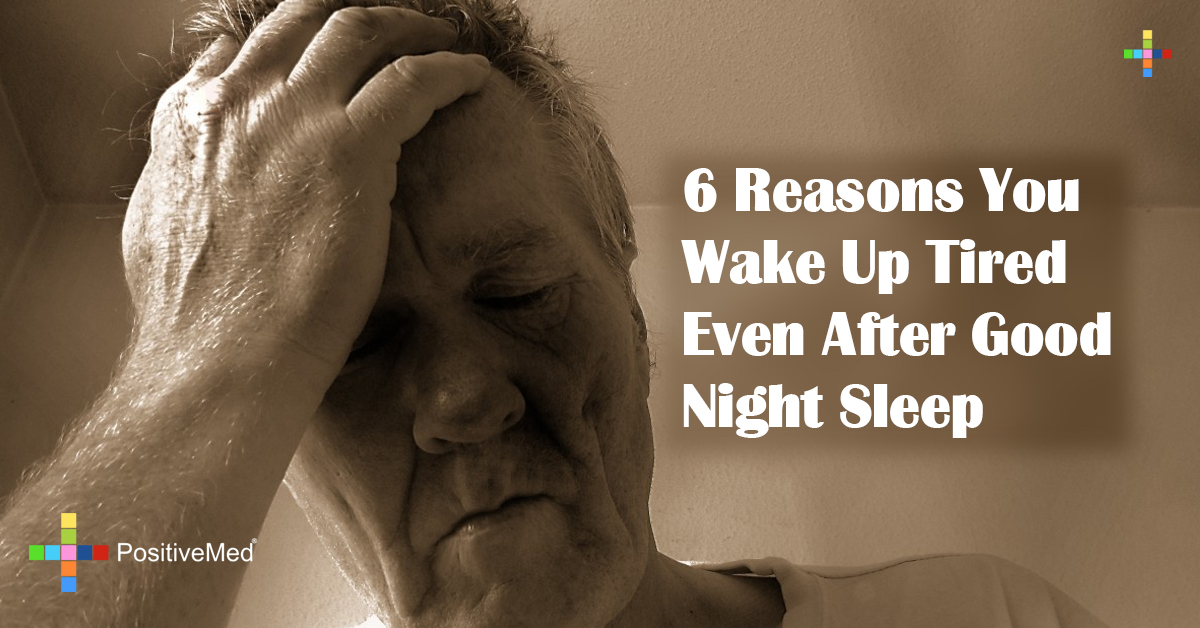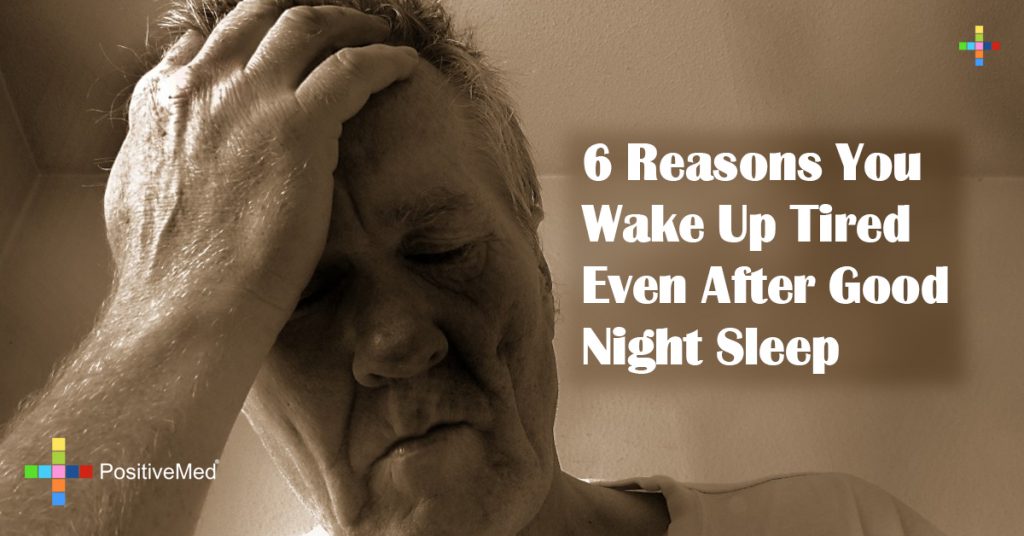
6 Reasons You Wake Up Tired Even After Good Night Sleep
[nextpage title=”…”]
Congratulations! You found time in your schedule for a solid eight hours of sleep! Your goal of taking better care of yourself is a great decision, so good for you.
Why didn’t it work?
There are many things that get in the way of solid, restful sleep. Housemates, children, weather conditions, and pets can be problematic. There’s not much you can do to banish thunder and lightning from your sleeping area. Also, if a child or pet needs your attention, you’re probably going to have to address that issue. But there are things you can do on your own to improve the quality of your sleep.
1) No caffeine after lunch. None. No coffee, tea, soda, or chocolate after 1 p.m. This can be a difficult decision to maintain during the 3 p.m. slump, however. Consider reducing the size of your lunch and adding a protein shake to your late afternoon routine. It will fill you up better than chocolate and give you consistent energy, rather than a sugar spike. Plus, boosting your protein intake is a great decision. If you quit caffeine at 1 p.m., you have eight hours to wind down for a 9 p.m. bed time.
2) Move part of your work out to the morning. Yes, that means getting up earlier. However, strenuous exercise early in the day increases your ability to burn fat throughout the day. An early morning workout also has less chance of being knocked off your calendar by an urgent issue that needs to be addressed during your afternoon workout time. Finally, strenuous exercise elevates your heart rate, which will heavily impact your ability to drop easily and quickly into deep sleep.
RELATED ARTICLE: Think Sleepless Nights Are No Big Deal? Your Sleep Schedule Might Be Killing You Slowly
[/nextpage] [nextpage title=”…”]
3) Banish the electronic light sources in your life. Not too long ago, humans lived by the sun. Sleep was easier to fall into at night because it was dark. However, electronic light sources have made it possible for us to be up 24 hours a day, and some of us are getting awfully close to that sort of schedule. Exposure to light promotes wakefulness and disrupts circadian rhythms. Consider getting away from screens by 8 p.m. This will give you an hour to wind down from the light exposure and talk your brain into the fact that it’s bedtime. Another option is to break away from electric light late in the day. Try getting into your pajamas half an hour before your planned bedtime, and using only candlelight for the next thirty minutes. It may make it easier to talk your brain down from a busy day into a deep sleep.
4) Check your sleeping hardware. How old is your mattress? How about your pillow? It’s possible to dump a fortune on a high-end mattress and still get poor sleep. Consider a gel foam mattress that offers a gentle amount of give. If you’re a side sleeper, you may need a bit more give. Before you tell yourself you can’t afford it, go try some mattresses on for size. Wear comfortable clothing and kick your shoes off. Lay down and stretch out on every mattress in the place. You’ll know when you’ve found the right one. For pillows, consider smaller and flatter before you go for big and plush. Two pillows are easier to manage if you need more height, whereas one big puffy pillow can put a great deal of strain on your neck. Save the big puffy pillows for bed dressing, not sleeping.
5) Build a routine at bedtime. Walk around the house, close the blinds and check the locks, if that gives you comfort. Prepare the coffee pot for the next day so all you need to do is hit the power button. To clear your mind for sleep, insert an internal routine when you lay down. It may be a prayer you say to yourself, or a list of things you’re thankful for. Repeat it to yourself every night at bedtime. Make it a ritual. Then, if you are awakened by anything or anyone, for any reason, you can start your internal routine again. It can guide you right back to sleep.
6) Get checked for apnea. You don’t have to snore to suffer apnea, and the damage can shorten your life. This is not something you can do on your own. Discuss your concerns with your physician and ask them for help in monitoring your breathing pattern while you sleep.
Simple changes can make better sleep a reality for you. Consider some of these easy adjustments to improve your sleep quality and increase your energy level and enjoyment of your waking hours.
[/nextpage]






